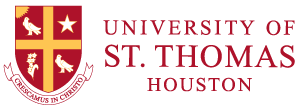The undergraduate education programs are designed to develop classroom teachers who demonstrate the ability to be effective with today’s student population in a variety of field settings, both private and public.
Undergraduate teacher preparation programs are available in General and Bilingual Education with certification levels of Early Childhood through grade 6 (with concentrations in Bilingual Generalist, Generalist, or English as a Second Language Generalist); grades 4 through 8 (with concentrations in English Language Arts & Reading, Mathematics, Science, or Social Studies); grades 6 through 12 in Physical Science; grades 7 through 12 (in a variety of teaching fields), Early Childhood through grade 12 certification in Art, French, Music, Spanish, and Theatre Arts, as well as supplemental certification in Special Education.
Certification requirements vary for each level and field of concentration. Students should select courses for certification programs only after consultation with assigned advisors in the School of Education and Human Services. Students must file a degree plan in the School of Education and Human Services no later than the end of the sophomore year.

